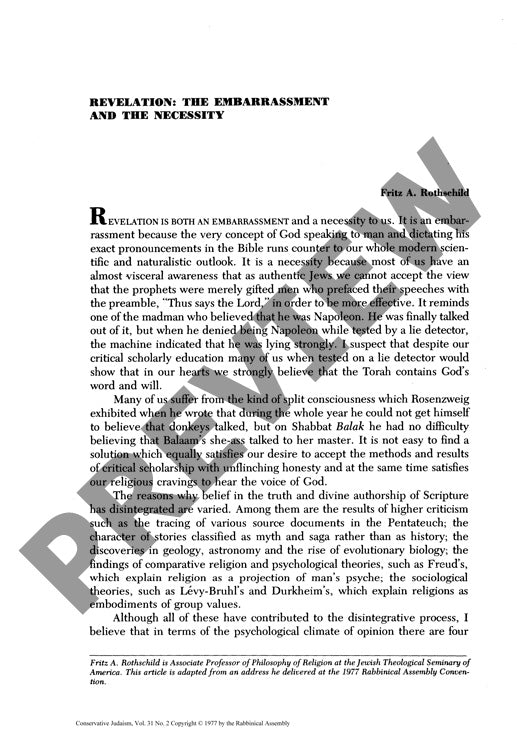Revelation the Embarrassment and the Nec
Couldn't load pickup availability
The concept of divine revelation presents modern Jews with a stark paradox: it is both intellectually problematic and religiously indispensable. Through analysis of three fundamental worldviews—cosmocentrism (naturalism), anthropocentrism (humanism), and theocentrism—a philosophical investigation reveals that only a theocentric framework can meaningfully accommodate divine revelation. Four prevalent modern assumptions have eroded traditional belief in revelation: faith in progress and evolution, rejection of the supernatural, individualistic hedonism, and universalism. By examining various responses to modernity, including fundamentalism, modernism, moderate Orthodoxy, and compartmentalized approaches, the research demonstrates that meaningful revelation requires understanding humans as incomplete creatures who participate in both natural and divine realms. Rather than conveying metaphysical knowledge, revelation manifests as God's self-disclosure through historical acts and commandments, with the biblical record representing a bipolar phenomenon containing both divine and human elements. These findings suggest that authentic Jewish engagement with modernity requires recognizing the creative tension between the eternal giving of Torah (mattan torah) and its continual reception (kabbalat torah) in each generation.

More Information
-
Physical Description
-
Publication Information
Published 1977
ISBN
-
Publication Credits
Fritz Rothschild

